5 Reasons Why Summer Swimming is a Beautiful Part of the Sport
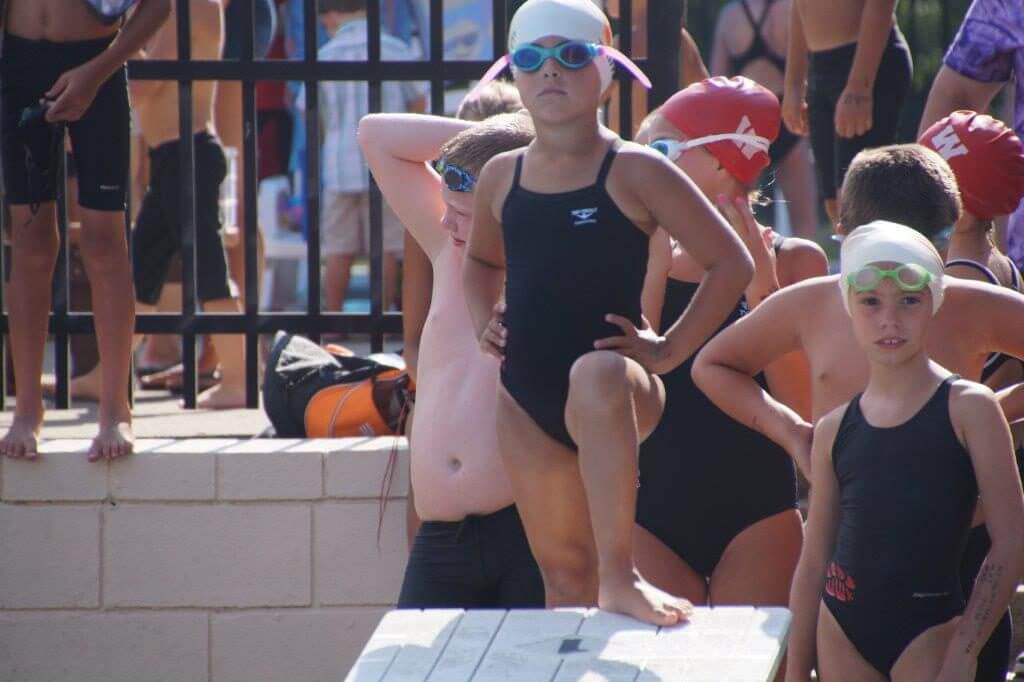
5 Reasons Why Summer Swimming is a Beautiful Part of the Sport
Experiences at USA Swimming meets, high school competitions and collegiate events are always meaningful. But there’s something special about summer age-group swimming, which can provide lasting value. With most summer leagues now wrapped up, here are just a few reasons why summer age group swimming has profound meaning:
1. Age group swimming is a sport for the whole family.
In a world where families often divide up to tote kids from one activity to another, age group swimming forms a stark contrast as a family enterprise. Kids from six to 18 take the plunge, all in one place. From age group swimming, we learn to enjoy the legendary baked goods hand-crafted by caring swim parents. We learn to cherish the time spent with our families. Moms and dads volunteer, while grandparents line the pool deck, ready to buy their favorite young swimmers a sports drink or a walking taco.
Because of the family-centered culture of summer age group swimming, age group swimmers can end their careers recognizing the value and importance of family–a value that they can carry into whatever they do, whether that is swimming-related or not.
2. It keeps the older swimmers young.
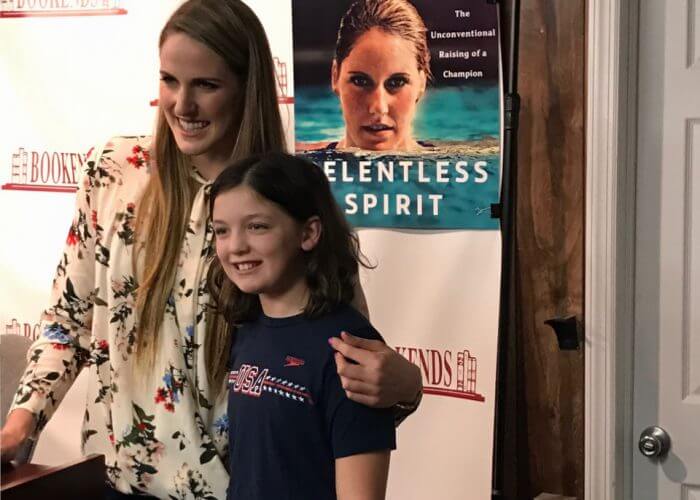
Photo Courtesy: Franklin family
The big moments in age group swimming are not the fingernail-close finishes. The truly memorable moments of summer swimming include the six-and-under in crooked goggles, swimming her first lap without stopping; the coaches frantically screaming at their eight-and-unders to keep their hand on the wall until the touch during relay exchanges; and the ten-and-under who nearly misses his race because he is hiding in a tent with his buddies playing cards with a chin covered in doughnut powder.
Older swimmers have the chance to watch the wee ones and remember why they love swimming in the first place. Instead of beating themselves up over tenths of a second, like older swimmers do, beginning swimmers celebrate regardless of whether they drop a full minute or add a full minute to their 25-yard backstroke.
Older swimmers have the chance during practices to overhear the basic, reassuring directives to little ones struggling to put their faces in the water: “Blow bubbles…take a breath. Blow bubbles…take a breath.” The simple, daily joys of fledgling swimmers are enough to sustain even the most disillusioned of high-schoolers.
3. It forces you to keep your successes and failures in perspective.
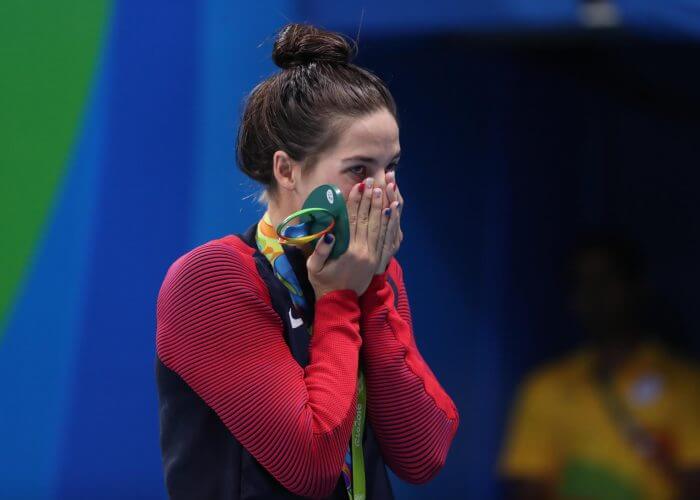
Photo Courtesy: Erich Schlegel-USA TODAY Sports
Age group swimming shows you that a loss to your teammate at a dual meet in a torrential downpour really doesn’t define you. Neither does that candy bar you earned for winning your heat at an invitational when you were ten. The summer season does not last long, so we enjoy it while it lasts.
In high-stakes club meets, high school meets, and college championships, swimmers tend to feel pressure to constantly perform at their peak in order to measure up against competitors, to prove themselves, or to keep a scholarship. But swimmers who have survived years of age group competition understand that there is more to life than swimming, and that performance is less important than joy.
4. It makes you laugh.
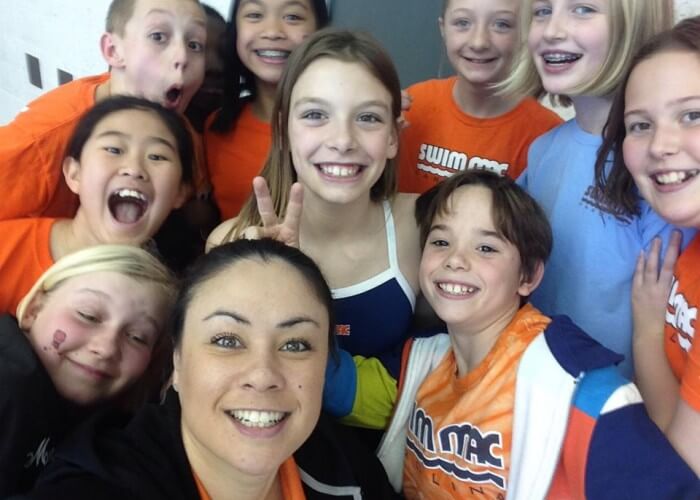
Photo Courtesy: Julia Czentye
Each pool has memorable quirks. Who can forget those starting blocks rumored to have been made from recycled garbage cans? What about the pool that everyone knows is 23 yards long? After navigating such obstacles as two-and-a-half foot depth at the starting end, unheated water temperatures in the sixties, and outside lanes that suck you into the diving wells, age group swimmers emerge stronger and with a better sense of humor.
These are the same swimmers who are willing to laugh when their college coach tells them that, despite being a staunch sprinter, they need to fill a lane for a distance swimmer with the stomach bug. These swimmers aren’t fazed easily in the real world, either. They can laugh in the face of adversity and adapt to less-than-ideal working conditions, because they count themselves lucky to no longer be swimming backstroke in the sun without lane lines.
5. It builds character.
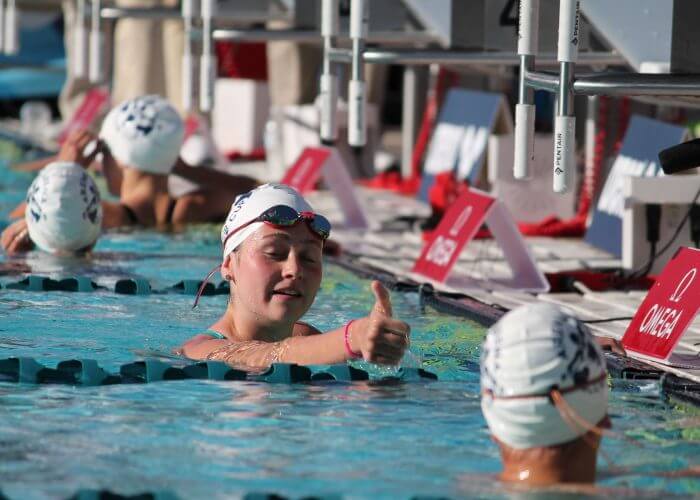
Photo Courtesy: Photo Courtesy: Kara Sekenski
Many of us remember the moment when we learned, as age group swimmers, to shake hands after a race, regardless of whether or not we were happy with the outcome. Many of us remember our first disqualifications, often accompanied by jokes made by overheated, hungry parents about making Dairy Queen excursions to “celebrate the DQ.” Each of us can recall the time a teammate lost us the relay race—or the time we lost a relay race for our team—along with the way our coaches made us high-five no matter what.
These kind of character lessons are relevant for more individualistic tiers of swimming, in which success is measured by achievement of individual goals, in which friendly competition too often ferments into bitter rivalry, and in which plateaus make up reality. The former summer age group swimmers can enter these tiers with hope of another possible reality.
All commentaries are the opinion of the author and do not necessarily reflect the views of Swimming World Magazine nor its staff.




So well captured. Bravo!